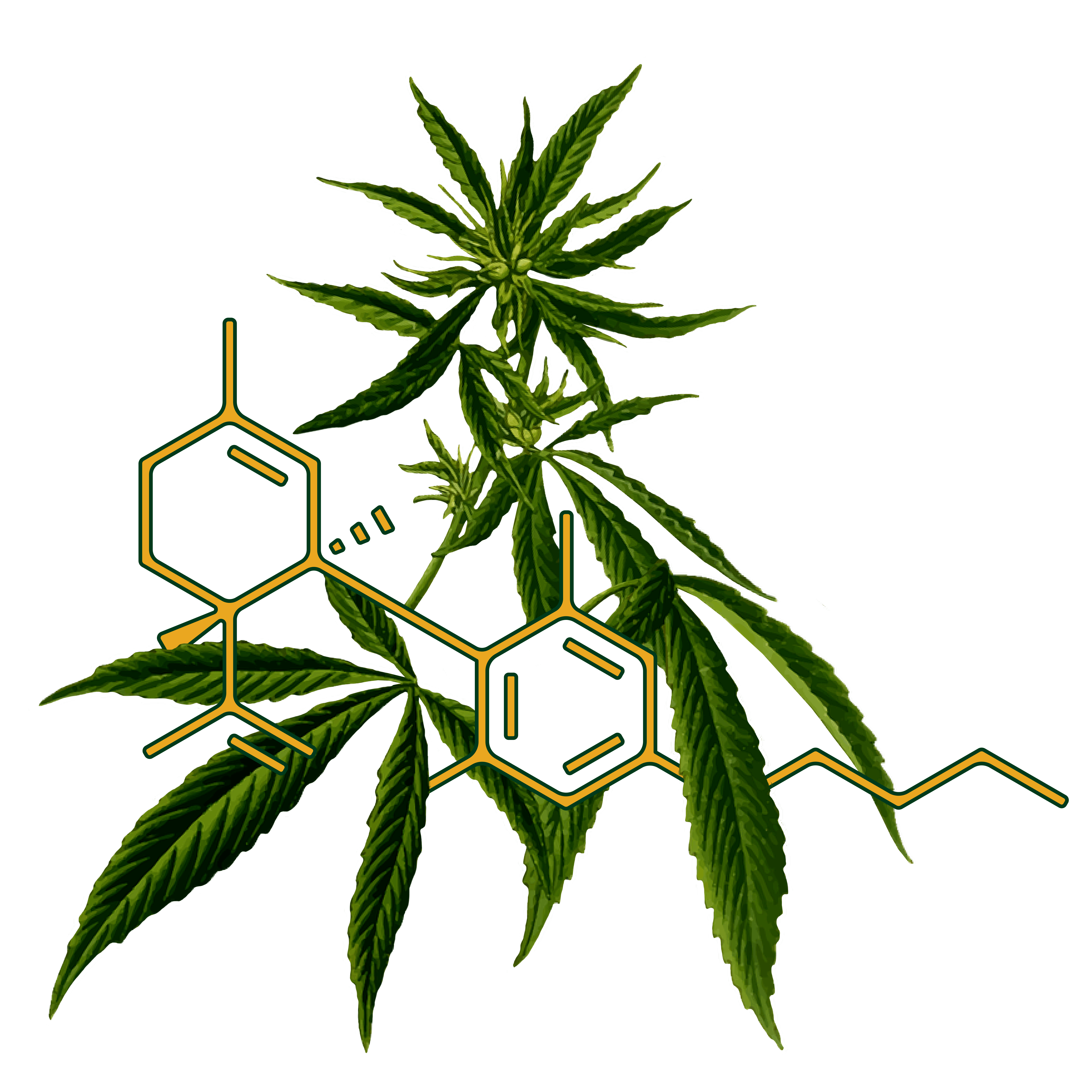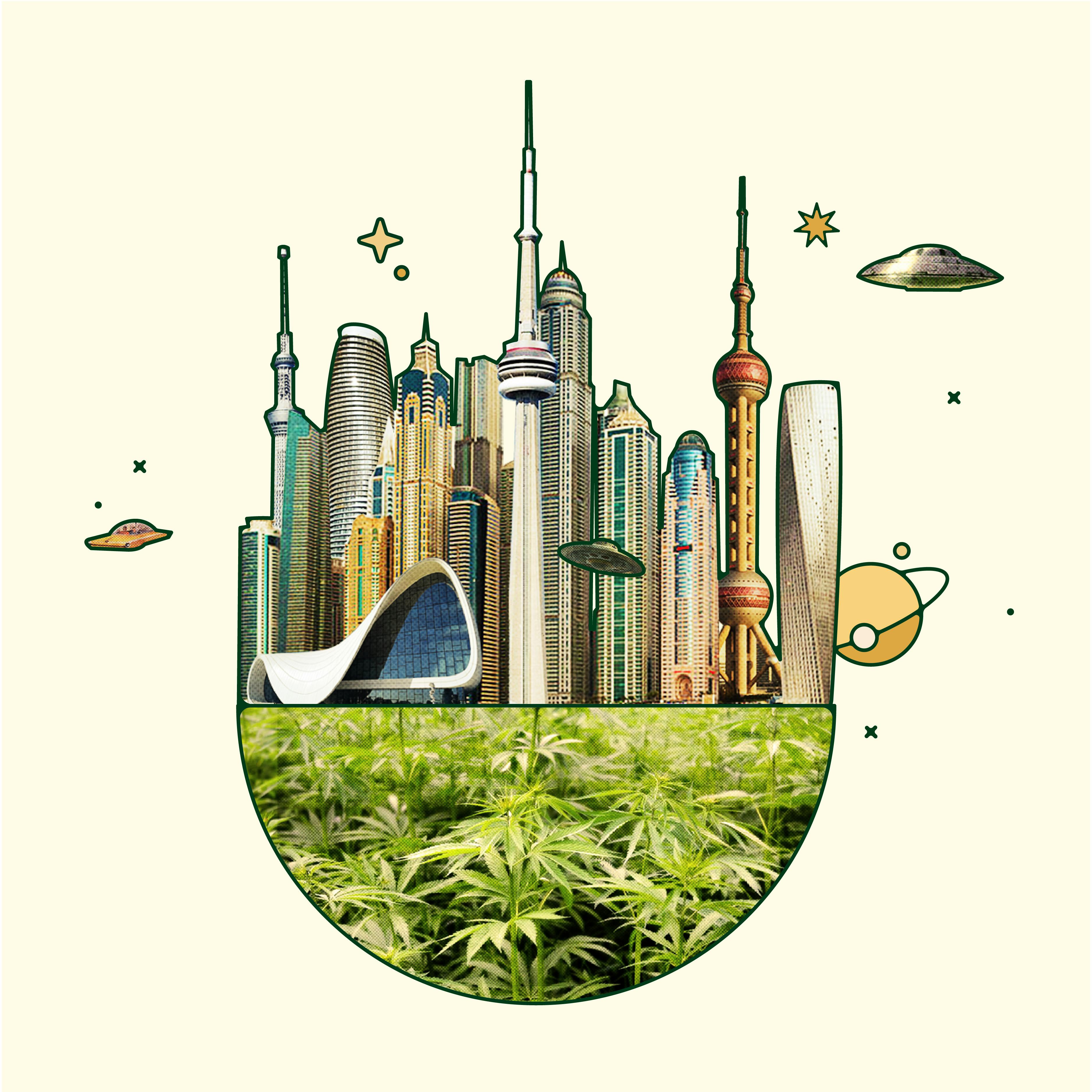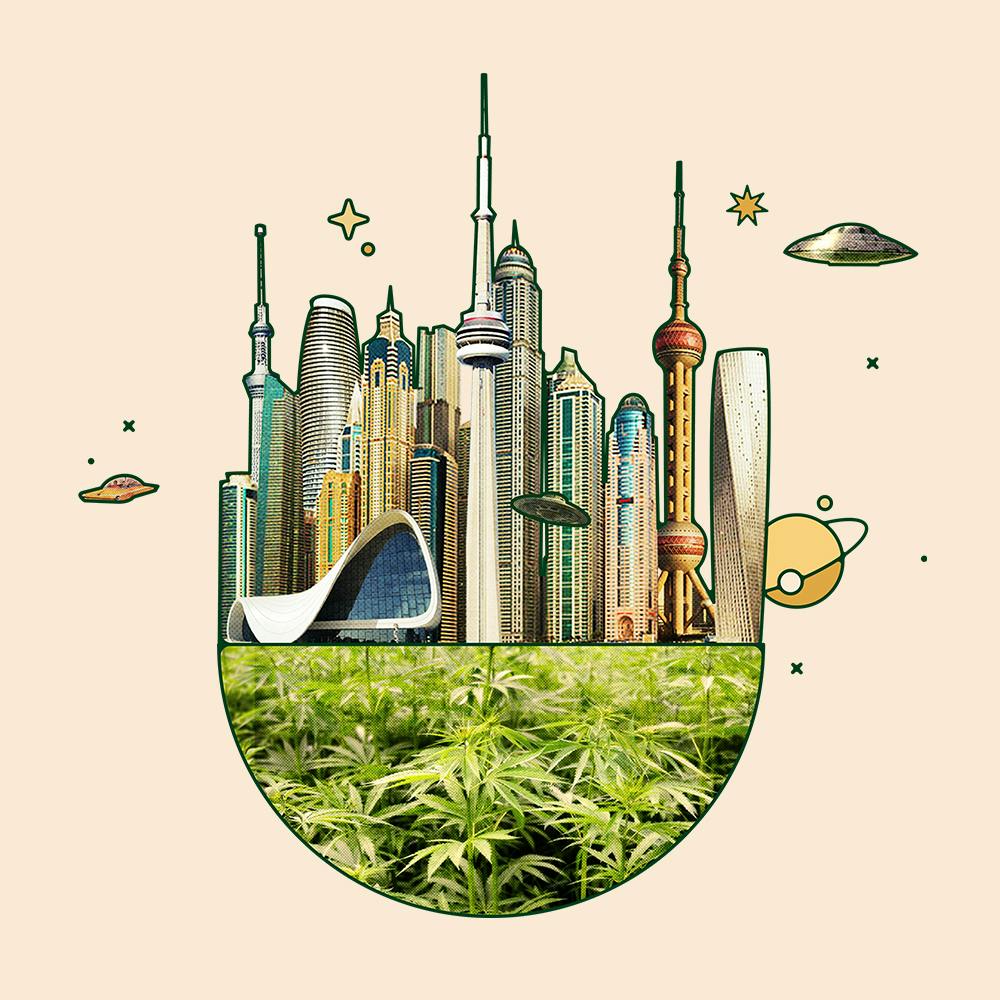Illustrated by Sabrina Bezerra
There's a good chance you've come across hemp thanks to CBD and its many reported benefits.
You may have even heard of the endocannabinoid system, a system found in humans that explains why cannabis has such a profound effect on us, but the wonders of hemp don't stop there.
We call hemp a “novel” crop, but this ancient plant has been around since the dawn of civilisation, interwoven in human lives for millennia.
Some of our first medicines, papers, clothing and rope have come from hemp, and today, the possibilities are dizzying.
From entirely hemp made “green” cars and houses, to sustainable clothing, there's little this plant can't take on—including helping the environment.

Not to put a damper on your day, but the world is changing before our eyes. Each decade brings a new rise in global average temperatures, and the earth is 0.85ºC hotter than it was over 100 years ago.
Our modern lives are demanding and inherently unsustainable. As we power and produce everything that makes our contemporary world familiar to us today, we ravage the land and release vast quantities of heat trapping gases into the atmosphere.
The earth's atmosphere acts as a blanket, keeping the planet at the optimal temperature for life. We need to trap some of the sun's heat from escaping the earth and keeping the planet at the optimal temperature for life to thrive—but we're continually adding to this protective layer. Heat stays trapped in the earth. The result is melting ice caps, forest fires that devastate human life, and our precious land turning to desert.
Carbon dioxide is the biggest culprit, comprising a monumental three quarters of greenhouse gas emissions. And for anyone doubting if contemporary lives are the cause of this, we have more carbon in our atmosphere than at any point in the past 3 million years.

Few crops can boast leaving the world in better shape after growing than before. And hemp is unparalleled in its ability to benefit the environment.
At this point, it's not just enough to adopt an eco-friendly lifestyle (though, we should absolutely be doing this!), so we need to actively remove carbon from the atmosphere. This sounds like a monumental task (it is), but nature has us covered.
Plants are carbon-consuming machines. They take carbon from the atmosphere and convert it into foliage, branches and roots, in a process otherwise known as carbon sequestration.
Some are hungrier for carbon than others, and hemp is ravenous. It can devour 22 tons of heat-trapping carbon from the atmosphere and produce two crops in a single year. This makes it one of the fastest carbon to biomass tools available.
Most agricultural crops don't even come close. Your run-of-the-mill spring wheat only sequesters around 256kg carbon per hectare. Add in processing and you're left with a sizeable carbon footprint.
Globally, agriculture accounts for 13% of carbon emissions, making it the second largest polluter. If we want to make a difference to the health of the planet, we need to shift our agricultural landscape, on top of consuming less single-use plastic, cycling to work and doing meatless Mondays.

Not-so-fun fact: excessive pesticide use is contributing to a catastrophic decline in bees. With three quarters of our crops relying on bees as pollinators, we're looking down the barrel of a bland and hungry future.
But hemp needs little to no artificial input to flourish, and thrives in a variety of climates, like, well, a weed. If you find yourself living by a hemp farm, you can rest easy because it's one of the safest agricultural crops we can grow. This low-input crop isn't just gentle on the earth, but can actively help to promote life.
We rely on our topsoil to produce 95% of our food. The problem is that our topsoil is finite and we're depleting it at an alarming rate. With each conventional crop grown, vital nutrients are leached out of the soil and the earth is less and less able to support life (seeing a pattern here?). And we're not just depleting it. Industrial activity is polluting our soils, rendering the earth barren and toxic.
Hemp has a rebalancing effect on the soil. It sweeps through the soil, cleaning it of contaminants (don't worry, hemp used for this purpose is never use this for food), while also adding nutrients back into the earth. Farmers can crop hemp in rotation with other crops, to ensure a bountiful and sustainable food supply.
And the life-promoting effects of this resilient, restorative crop don't stop there. When other key pollinating crops have finished, hemp flowers provide an essential source of nutrients for hungry bees and other pollinating insects. In fact, a recent study on hemp farms in Colorado found 23 different bee species thriving on hemp flowers.
Hemp has the potential to breathe life into an overworked, under-appreciated planet through cleaner air, fertile soils and happy wildlife.






